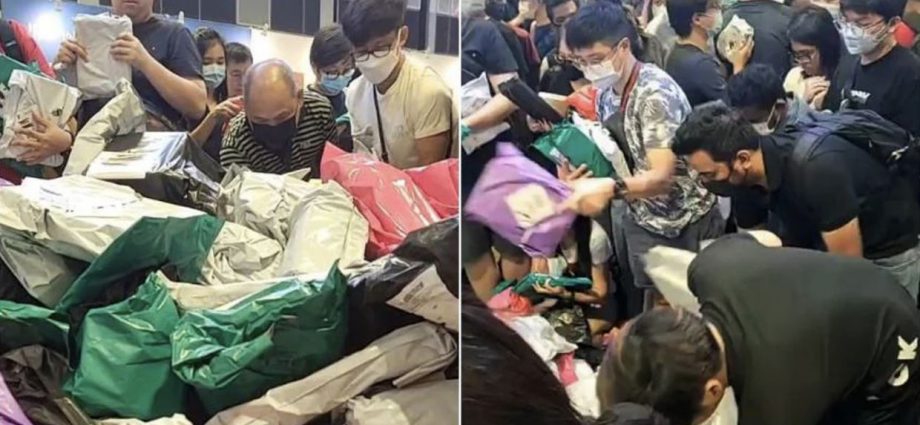
SINGAPORE: Earlier this month, a retailer offering parcels containing mystery items for S$6 (RM19) sparked a frenzy at Comex, one of the largest tech shows held in Singapore yearly.
In videos posted on The Auction House’s Facebook page, bargain hunters can be seen snapping up parcels which were said to include household items and tech gadgets.
However, the retailer’s activities may be illegal if it is found to have been selling mystery boxes, which are currently prohibited in Singapore.
Although not formally defined yet under Singapore law, such boxes usually contain surprise items which may be of higher value than what consumers would normally pay for them.
In 2018, merchants operating vending machines dispensing mystery items were told by the police to stop operating them as they were deemed a form of public lottery.
On Tuesday, in response to queries from The Straits Times, the police confirmed that a report has been lodged against The Auction House and investigations are ongoing.
When contacted, The Auction House said it was aware that mystery boxes are illegal but it did not consider the parcels it sold to be mystery boxes as the contents were shown on its Facebook livestream.
A spokesman said: “We opened quite a lot of parcels… There are some repeated items like shoes and bags.”
In one of the videos streamed live on its Facebook page during Comex, which was held between Sept 1 and 4, Melissa Wix, The Auction House’s founder, can be seen showing the audience items such as an eye massager and vacuum flask, which were in four parcels she opened.
However, the prices of these items were not listed in either the comments section or mentioned during her livestream.
Lau Kok Keng, a lawyer and head of intellectual property, sports and gaming at Rajah & Tann Singapore, said mystery boxes are not defined in the Gambling Control Act but this incident would still constitute a game of chance.
Lau said: “Shoppers are paying the same amount to receive a randomly allocated box, each of which may contain different items of different value. So one could end up getting a box with items of much lower value than what another shopper may get.”
While the Gambling Regulatory Authority (GRA) previously announced it intends to regulate mystery boxes and introduce safeguards, such as a S$100 (RM321) cap, shopping experts said there is a need for more details on what will be allowed.
Lau said: “It remains to be seen how imposing the S$100 (RM321) cap can be enforced, and its impact on… reducing the gambling inducement factor.”
Professor Sharon Ng, head of the marketing division at Nanyang Business School, said that the authorities can consider allowing firms to offer mystery boxes for limited durations during promotions or on a less frequent basis, such as once a month, to reduce the risk of addiction.
However, the experts also recognised that mystery boxes, when properly regulated, can be fun for consumers and a useful sales mechanism for retailers.
Dr Lynda Wee, an adjunct associate professor from the same division, noted how retailers may sell mystery boxes below the regular retail prices of the items when they want to clear stock.
Prof Ng added: “Mystery boxes are like getting oneself a present. They are quite different from forms of gambling which promise large financial gains.” – The Straits Times (Singapore)/Asia News Network

